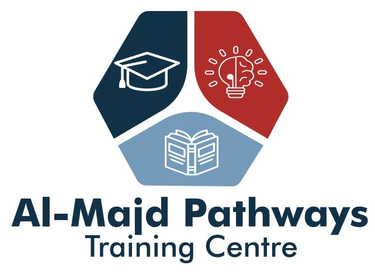
Power Distribution Equipment
Installations, Reliability, Safety, and Efficiency
£6450.00
Why Choose this Training Course?
In the realm of electrical installations, the reliability, safety, and efficiency of power distribution equipment are paramount. This Power Distribution Equipment training course delves into the construction, operation, and maintenance aspects of key equipment, including transformers, circuit breakers, ring main units, switches, and protection devices. Ensuring the secure operation of these systems is vital, as they are safeguarded by modern and advanced relays and protection devices. Power distribution can occur through overhead or underground methods, with uninterruptible power supply systems providing auxiliary power when needed.
Protection systems play a critical role in averting faults that could harm electrical infrastructure and in swiftly isolating faulty sections to maintain uninterrupted power supply in other areas of the system. Recent technological advancements and shifts in the operational paradigms of utilities and industrial organisations have underscored the importance of integrated protection and control.
Highlights of the Course
In-Depth Exploration of Transformer Construction and Operations
Comprehensive Analysis of Circuit Breaker Characteristics
The Significance and Role of Uninterruptible Power Supply (UPS) Systems and Batteries
Varied Maintenance Strategies
A Comprehensive Look at the Functions of Protection Relays
Course Objectives
Upon course completion, participants will have the skills and knowledge to:
Gain a profound understanding of key power distribution equipment.
Identify various maintenance strategies.
Describe different types of circuit breakers.
Analyse the characteristics of oil-immersed transformers.
Design a basic electrical power distribution system incorporating primary power distribution equipment.
Who Should Attend?
This course is ideal for engineers, technicians, and supervisors involved in the operations and functions of critical renewable energy integration components. Al-Majd Pathway Centre (APC) welcomes a diverse range of professionals, including but not limited to:
Electrical Engineers
Electrical Supervisors
Power Engineers
Managers overseeing electrical installations
Project Engineers
Training Approach
Al-Majd Pathway Centre (APC) adopts a multifaceted approach to adult learning, ensuring optimal understanding, comprehension, and retention of the material presented. This approach includes engaging discussions and the incorporation of the latest videos and technologies related to smart grids and renewable energy.
Active participation is encouraged, especially during daily wrap-up sessions, providing participants with opportunities to engage with the presenter to discuss specific issues and seek suitable solutions. The course aims to address individual participant goals to the extent possible.
Course Outline
Day One: Distribution Power Transformers - Types, Characteristics, Operations, and Protection
Types and Designs of Power Transformers
Oil-Immersed Transformers
Key Components of a Power Transformer
Transformer Vector Groups
Cooling Systems for Transformers
Fault Levels and Transformer Impedance Percentages
Day Two: Construction and Characteristics of Switches and Circuit Breakers
Construction and Operation of Load Break Switches, Earth Switches, and Isolators
Construction and Operation of Molded Case Circuit Breakers (MCCB)
Operations and Construction of Air Circuit Breakers
Electronic Trip Mechanism in Air Circuit Breakers
Construction and Operation of Vacuum Circuit Breakers
Characteristics of Vacuum Circuit Breakers
Day Three: SF6 and High Voltage Circuit Breakers
SF6 Arc Quenching Characteristics
SF6 Circuit Breaker Operations and Characteristics
Live Tank High Voltage Circuit Breakers
Dead Tank High Voltage Circuit Breakers
Safety Considerations for SF6 Circuit Breakers
Exploring Green Alternatives in Grid Technology
Day Four: Auxiliary Power through Batteries and Uninterruptible Power Supply (UPS)
Identifying Critical Loads and Equipment Categories
Types of Online and Offline UPS Designs
Components and Functions of UPS Systems
Double Conversion UPS Systems
Redundancy and Parallel Operation of UPS
Modes of Operation for UPS Systems
Day Five: Maintenance and Safety of Power Distribution Equipment
Understanding the Functions of Numerical Relays
Exploring Maintenance Strategies
Addressing Partial Discharge and Its Implications
Benefits of Thermography in Maintenance
Instruments for Power Quality Measurement
Certificate of Completion: Upon successful completion of the course, participants will receive a Certificate of Completion from Al-Majd Pathways Centre (APC).
Get in touch with us today.
Follow
Sign-up for our newsletter
0044 7466410010
©2025 All rights reserved.
